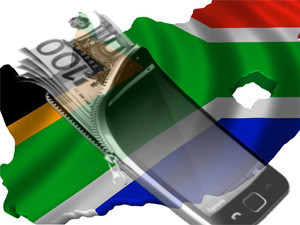
MTN SA announced this week it has decommissioned its Mobile Money offering due to lack of commercial viability.
The service was launched in 2012 when MTN partnered with the South African Bank of Athens, Pick n Pay and Boxer stores to offer a mobile money solution enabling the opening of simple bank accounts via phones.
MTN Mobile Money allowed anyone with a mobile phone to send and receive money quickly, safely, affordably and conveniently.
"The operating costs of providing a mobile money platform have become prohibitive," says Larry Annetts, MTN SA's chief consumer officer.
Earlier this month, the company said it would not extend the Mobile Money service to new customers. Annetts said at the time there were approximately 140 000 customers on board.
MTN says it is working to ensure its customers still using the platform are not adversely affected. The product will still work outside of South Africa.
Not the first
In May, the telecoms company said it was not giving up on its mobile money offering after rival Vodacom pulled the plug on M-Pesa in South Africa.
"In SA, we have never really been that strong when it comes to mobile money," MTN SA CEO Mteto Nyati said at the time.
"But I don't mean we are going to suddenly stop doing anything in that area. We will continue to try and find ways where this company can participate in mobile financial services; that is a broad space and there are a lot of opportunities there."

Dobek Pater, Africa Analysis MD, believes MTN giving up on Mobile Money was inevitable, given Vodacom's experience in the market.
"Although MTN appeared to fare somewhat better, it looks as if traditional mobile money services are proving themselves non-sustainable in SA in their current format," says Pater.
George Kalebaila, IDC senior manager for telecoms, media and Internet of things in Africa, agrees.
"Mobile Money in South Africa was not going to be a mass product given the unique dynamics in terms of penetration of financial services in the country," says Kalebaila.
"It would have worked had it exploited small niche markets, such as payment of social grants, salaries for domestic workers, etc. Unfortunately, some of these niches were not big enough for the mobile operators to justify running the services."
He says in addition: "There was no ecosystem that developed around mobile money to support the growth of the service as we have seen in other countries such as Kenya and Tanzania where the service has done very well. Mobile agent network was under-developed in SA and therefore even if one used mobile money, they had few options in terms of where they could use mobile money to pay for other services."
Still in the game
MTN SA said it would release other financial products soon.
"The decision by MTN SA to shelve its Mobile Money service does not signify a complete exit from financial services," says Annetts.
"MTN is still committed to remaining a significant player in the financial services space and we are exploring opportunities in the financial services space and other adjacent sectors."
Kalebaila says MTN has already announced it is moving into the micro insurance space with a partnership with MMI, which could be the direction the company is going.
"Suffice to say, even if MTN's mobile money services have failed here in South Africa, the service is very much viable in other African countries. And I guess MTN's focus for financial services will not necessarily be targeted at South Africa but rather for other markets across Africa where the dynamics support these types of services."
Pater also mentioned the upcoming launch of an insurance product by MTN.
"I think we will see a move towards an e-wallet environment and perhaps in time the mobile operators becoming effectively financial institutions similar to the debit (perhaps even credit) card environment and commercial banking services. This is likely to take place with financial partners."
Kalebaila says although mobile money did not take off in its native sense, there are other iterations worth exploring.
For example: "There are other variants of mobile money such as cross-border remittances that could work exploiting the larger African diaspora in South Africa," says Kalebaila.
"Econet Cash is exploiting some of these opportunities targeting the Zimbabwean diaspora within South Africa. Other services include Mukuru, Paisa and Zoona, who're now competing with traditional money transfer services such as MoneyGram. Of course, these services will remain niche services in South Africa but with careful planning and execution, there is potential to do well."
Share